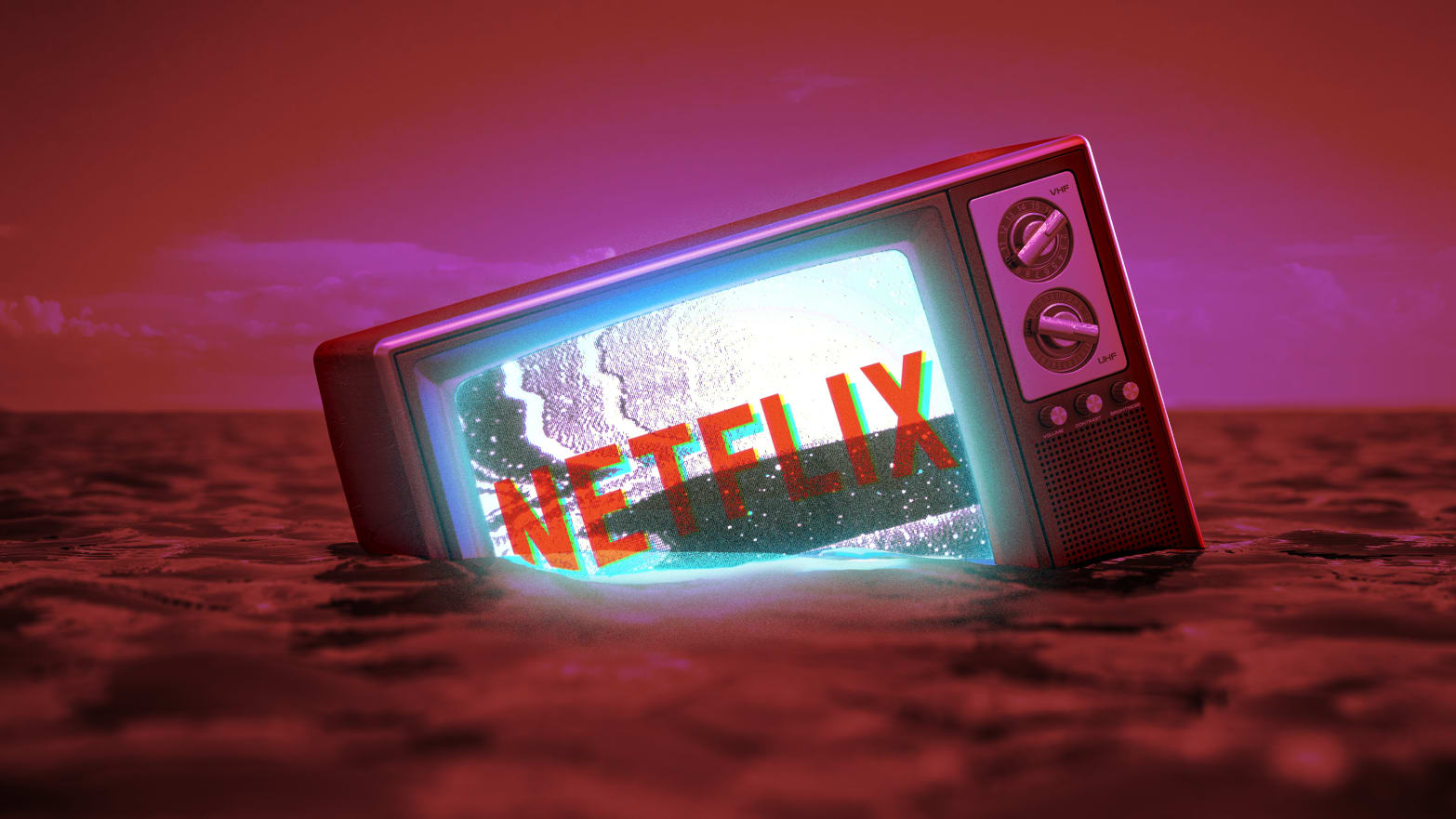I was unsettled. My wife and I had just finished dragging ourselves through seven seasons of the lowbrow legal dramedy known as Suits, giving up on it around the time that Megan Markle’s character leaves. What shocked me wasn’t the show per se—but an article I read about it afterwards, which details the unexpected return to prominence of the four-year-old show.
I realized that we were taking part in a mass-culture phenomenon without knowing it. Even though we had been scanning for something to watch—having recently cycled through other trashy classics like House and Shameless—it never occurred to me when we clicked on that first episode of Suits that 1.5 millions others were doing the same thing.
We had fallen into a streamhole.
The "personalization" that platforms claimed to offer us is dying. Platforms like Amazon, Uber, and Netflix all took something that was more or less working—bookstores, taxis, and cable—and promised us something better. It worked, for a while. We still get cheap books (and other items), rides, and TV from these sites.
However, the promise of platform production is personalization—they know what products you might like, what shows you want to watch, who you want to date. When the bottom comes out from that model, though, because its financing is unsustainable and its labor is rebelling, the fancy algorithms stop mattering as much. Then the options get fewer, the costs go up, the jobs get worse. Living with algorithms goes from being delightful to being a degraded copy of the capitalism that preceded it.
The streamhole is when you think you're choosing but the platform is choosing for you. Commentary often focuses on the negatives here—Amazon nudging you towards its own products, for example—but the streamhole can be amazing, like riding a wave. We buy stuff and listen to songs and watch cooking videos without knowing how we got there. Spotify plays me MJ Lenderman's "Someone Get the Grill Out of the Rain," and I'm hooked. He's in the playlist now, in my ears when I'm working or walking around.
The first time I realized I was in a streamhole, I had listened to all of S. C. Gwynne’s book Empire of the Summer Moon only to realize it had been signal-boosted to me by Joe Rogan. The algorithm has replaced the guy in the music or book store, and the friend network that cultivates fandom.
We tend to read this whole situation in a paranoid style. Rogan, after all, serves as a pipeline to far right content for millions. Amazon, with its monopolistic practices, isn’t acting innocently when it recommends its Amazon Basics line among the top options. But there’s a balance between these powerful platforms, companies, and individuals, and a genuinely social kernel that makes the streamhole fun and pleasant. As I’m typing this, a song I’ve never heard before (“freequent letdown” by illuminati hotties) gave me a little dopamine rush. It didn’t come from a friend, but I’m sending it to a friend to listen to now. There are all kind of problems with the streamhole, but I can’t pretend I don’t like it.
Spotify, the music platform, will create playlists of all kinds for you—potential streamholes based on a song, an artist, or a genre. "collaborative filter," a massive data grid with over 500 million users and 80 million songs. Imagine it laid out like an Excel spreadsheet, which is not so far from the truth. (Spotify uses two other systems too, one that automatically analyzes lyrics, and one that compares sound signatures in songs.)
If I continue in my MJ Lenderman groove, that bumps the numbers slightly. I also like hip-hop act Shabazz Palaces and Big Thief bandleader Adrianne Lenker, so signals pop up in the grid between their songs. If you like Big Thief, then because of me there’s a little lurking Shabazz Palaces in there somewhere, ready to be activated if the number crosses a certain threshold.
Of course, it’s not that simple. The grid is gigantic, and the data sources are many (time of day, how much of a song you listen to, whether you put it somewhere to remember it, etc.). Also, let’s be clear: streaming has been bad for musicians, just as it has been in many ways for TV writers. But this type of algorithm isn’t only boosting Rogan-sized signals.
The reason the mini-revelation about Suits shocked me is that it wasn't personalized. I didn’t know this at first, so for a while I thought I was just floating along in the usual way. Netflix is pushing hard to make sure it gets those eyeballs.. It’s hard to avoid the impression that this is because of the SAG-AFTRA strike, which is threatening the fall TV lineup. The push worked, with more than 3 billion minutes of Suits-watching reported.
But this success shows us how the platform model is backfiring. A writer who worked on the show reported residuals for all this streaming of less than $300. The collective residuals for all writers on the show are reportedly less than $3,000. It’s easy to read the tea leaves. The era of prestige streaming television is coming to an end. That’s why the revelation about Suits felt like a betrayal. The streamhole bubble had burst.
We’ve heard about the “network effect” of platforms for years. Once you get north of 100 million users, others come on because people are already there. Winners win. Internet scholar Viktor Mayer-Schönberger has added a “feedback effect” to the network effect. Larger platforms don’t just have more users, he points out: they have more data. Far more data. This makes their algorithms better, because they learn more from more robust data. The product refines itself. But this only works if the actual goal is to produce a better product in the first place.
The actor Justine Bateman, who consults SAG-AFTRA’s negotiating committee on AI, reports that studios don’t necessarily want to make good TV. The execs, according to Bateman, want “second screen” content in many cases. They want TV you can watch while looking at your phone. One has to wonder how many of the 3 billion minutes Suits got had actual eyeballs on the TV.
AI-generated content suits this two-screen solution perfectly. It also collapses work and entertainment. With TV so bad it’s not distracting on the second screen, you can keep sending emails and tending to Twitter while you “watch.” This situation was predicted by the philosophers Theodor W. Adorno and Max Horkheimer, who proclaimed that “entertainment is the prolongation of work” in capitalism. As personalization flattens out and the platform’s model stalls, we’re getting a type of entertainment that just prolongs the work day.
Great TV makes for important conversation. Succession felt urgent, as did Mad Men. I haven’t had a single meaningful conversation about Suits, and I’m not sure I want to try. As platforms descend to earth, we're all going to be stuck with shittier versions of the stuff they promised to improve. When it's not personalized, a streamhole is just mass culture all over again, with fewer options and no critical conversation to take away from it.
Amazon is becoming just an online convenience store, Uber is less reliable and more expensive than taxis once were, and streaming is becoming... cable. What once promised to be an Eden of "content" has hit a wall. So-called “platform capitalism” might end up being more boring—and economically worse—than it was before the Internet.

